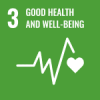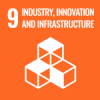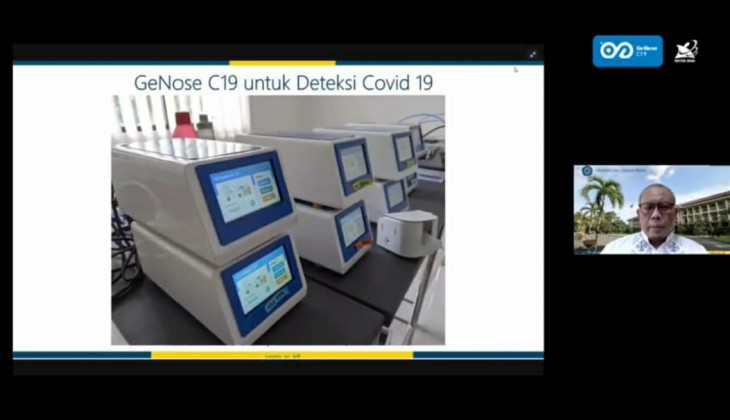Bambang Brodjonegoro, as the Minister of Research and Technology/Head of the National Innovation Research Agency (Menristek/BRIN), said UGM researcher’s innovation GeNose for Covid-19 detection by breath screening was considered a solution in reducing dependence on the Polymerase Chain Reaction (PCR) tool in Covid-19 testing.
“We cordially welcome the findings/innovations of UGM researchers through GeNose. For us, this is an innovation that can reduce import dependency on screening tools,” he said on Friday (15/1) in the Kemenristek/National Agency for Research and Innovation Webinar entitled, “GeNose, Independence Technology Innovation of National Children’s Medical Tools.”
At the beginning of the Covid-19 pandemic, Bambang said that the government brought numerous Covid-19 screening tools from various countries. Besides, some of them did not equip themselves with clear standards. Therefore, some errors occurred when examining the tools in the field due to inaccurate tests.
GeNose is a breakthrough because the screening is not based on antibodies or antigens but is based on volatile organic compounds (VOC) instead. This compound can distinguish between people who are infected with Covid-19 or those who are not.
“We welcome GeNose because apart from becoming a part of the Covid-19 Research and Innovation Consortium, it is also a form of synergy between the government, researchers, and the business world,” he explained.
Therefore, he hopes that GeNose keeps improving in terms of accuracy. The accuracy of this tool greatly determines the 4T process (tracking, tracing, testing, and treatment) in handling Covid-19 in Indonesia and its success in stimulating the national economy.
Meanwhile, Dante Saksono, as the Deputy Minister of Health (Wamenkes), said that GeNose is an example of the innovations of Indonesians who have contributed to support the independence of national medical tools. GeNose is the initial proof of new innovation, especially in preventing Covid-19 transmission.
Dante said the government supports medical tools development by researchers in Indonesia. However, it is important to be concerned with validation tests such as sensitivity, specificity, positive predictive value, and negative predictive value in developing medical tools. In addition, there should be a further improvement in the validation test on GeNose.
“GeNose sensitivity and specificity are indeed more than 90 percent, but we should further examine the validity test,” he said.
He said the Ministry of Health would assist in the GeNose validation test at the Ministry of Health Research and Development Agency. This test can provide a better standard and input in improving the next version of GeNose.
The head of the GeNose development team, Prof. Kuwat Triyana, in his remarks, explained that his team would advance to improve the performance and validation of GeNose.
“The hope is that after the post-marketing test, we will use valid data confirmed by a good and correct PCR that will be used as training data so that we will remain to improve the artificial intelligence,” he explained.
He explained that GeNose was designed using an artificial intelligence (AI) system. Thus, the more we conduct the tests, the level of accuracy will also increase. This tool has several advantages for Covid-19 screening, including high reliability, relative fast detection, non-invasive, and affordable test price.



